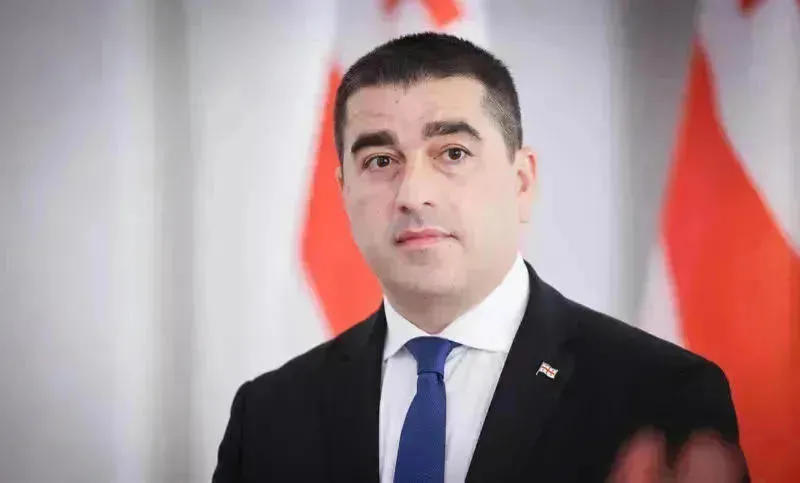
"An ultimatum was presented to the Parliament by an NGO. The head of this NGO, which is financed by the embassies of Denmark and the Netherlands, even imposed a one-hour deadline," said the Chairman of the Parliament of Georgia, Shalva Papuashvili.
As the Chairman of the Parliament noted, organizations funded by these embassies issued an ultimatum to the Parliament of Georgia yesterday. "Secondly, they attempted to escalate a peaceful rally into one that would go beyond peaceful means." According to him, the embassies should respond to this situation.
"I believe these embassies should clarify their stance. Is the purpose of funding this NGO to dictate to the representative body of the Georgian people which laws to adopt or reject? Moreover, not only did they issue directives, but they also set a one-hour deadline while people were gathered, potentially inciting undesirable actions. When this deadline expired, the head of the NGO funded by the Danish and Dutch embassies called on demonstrators to move to the chancellery, effectively steering part of the demonstration towards potential violence. The area near the chancellery is smaller than on Rustaveli Avenue, and when you call people gathered on Rustaveli to move to a smaller area, you inevitably increase the risk of physical confrontation with the police, as has been attempted. Therefore, it's crucial that the financiers from the Netherlands, Denmark, and any other backers of this NGO, along with those supporting other NGOs present on stage yesterday, denounce the actions of the organizations they fund. These organizations, financed by them, presented an ultimatum to the Parliament of Georgia, the representative body of the Georgian people. Furthermore, they attempted to turn a peaceful rally into one that could escalate beyond peaceful intent. Imagine if the state of Georgia funded an organization in the Netherlands, Denmark, or any other country, and that organization stood before the parliament of that country presenting ultimatums and subsequently, if those ultimatums weren't met, they resorted to potential acts of violence. This is exactly what we were talking about.
This highlights the critical importance of knowing exactly who finances such organizations. This has two significant effects. Firstly, the public will have specific knowledge about the organizations and their funders. While we are aware of some of the backers of these particular organizations, there are other organizations whose funders remain unknown to us. Secondly, when a donor is aware that their funding is transparent, they are likely to take more responsibility for the actions of those they support. For instance, in certain cases involving studies or publications by NGOs, donors may request disclaimers stating they are not responsible for the content. It's important to understand the stance of these funders on all actions, especially regarding the events of yesterday. We want to know the position of these embassies or donors—whether they support or oppose the ultimatums presented to the Parliament of Georgia by the NGOs they finance. Instead of criticism or advice, these NGOs set ultimatums and consequently, as they suggested, failure to comply with these ultimatums may lead to potential acts of violence," - said Shalva Papuashvili
v-if="article.gallery" v-html="article.gallery"
(adsbygoogle = window.adsbygoogle || []).push({});